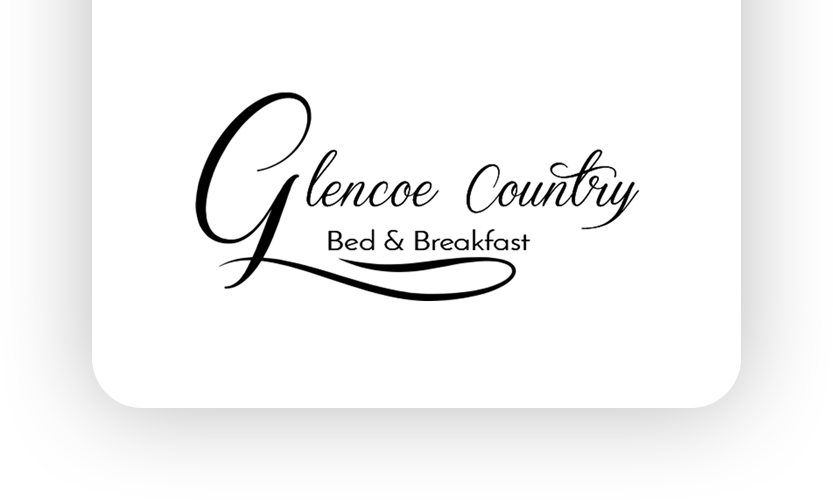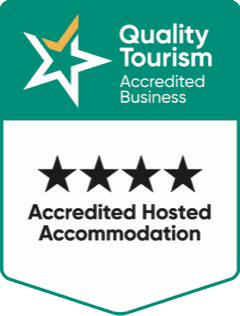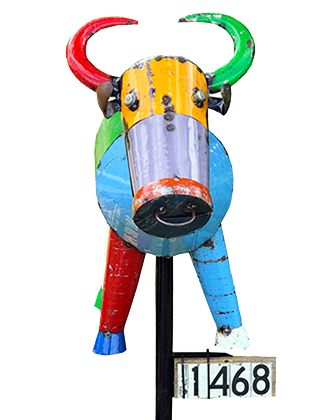The hotel distribution landscape is already quite complex…but what are the disadvantages of using a travel agent (especially an online one) compared to booking direct?
Over the past decade, there has been a lot of transformation with the hotel distribution side.
Online travel agents (OTAs) have witnessed a spike as well as a loss in OTA market share. And today, there are a huge number of hotels that have stopped putting much weight on OTAs and started promoting direct bookings.
This old ‘OTA vs hotel direct bookings’ battle has put accommodation providers like Glencoe B&B in a dilemma. They are finding it hard to balance between them.
In this blog, we are going to compare the pros and cons of both OTAs and direct bookings to understand which is better.
What is an OTA Booking?
An online travel agency (OTA), also known as a hotel booking site, is a marketplace that provides consumers with multiple hotels to book with.
Simply put, OTAs are the middleman that connect travellers with hotels and take a small commission in the process.
In recent times, OTAs have gained tremendous traction. Millions of travellers around the world use them to plan their travel and stay.
Furthermore, OTAs are not just driving bookings to hotels, but also delivering a lot of other benefits.
- Giving hotels more visibility on the web
- Providing rich tools, analytics, and insights to target the right travellers
- Managing guest reviews and more
So – it’s not quite as easy as saying what are the disadvantages of using a travel agent.
What is Direct Booking?
Direct bookings are where the guest books directly through a hotel or guesthouse website, or by phone call, email, social media, etc.
How do they get to know about the hotel? There are multiple factors that contribute to this. First, they must have:
- seen your advertisement
- read your blogs
- gone to some OTA but decided to book through your website
- seen your hotel in person and considered making a booking
Also, direct booking has its own set of benefits. Here are some of them:
- A great way to nurture a good relationship with guests
- Gives you the power to personalise the guest experience
- Can gather more data for your future marketing campaigns
- And of course, you can do away with commissions
The OTA vs Direct Booking Conflict
The opportunities OTAs present in terms of revenue are significant and it is crucial for hotels not to deprive themselves of such avenues.
However, hotels are still skeptical about relying on it, and there are advantages and disadvantages of using a travel agent as there are with going direct. Let’s understand why it has become such a huge battle.
The rise of OTA bookings
Early on, hotel reservations were either made directly through a phone call, walk-in, or via a travel agent. But over the years, things have changed.
Today, there are several ways to book a hotel room and one of them is through an OTA.
The concept of OTAs dates back to the days when Microsoft launched Expedia Travel Services in 1996 in the USA.
Then, it was just a tool to book a room quickly which evolved and gained a lot of popularity due to hard work and a lot of branding.
But there’s another reason that ushered in the popularity of OTAs — lack of transparency in the traditional system.
When brick and mortar travel agents and tour operators were still in the game, there was a serious lack of transparency. But OTAs stepped in and quickly formed a symbiotic relationship with hotels and travellers.
They let everyone have a clear picture of everything. Since then, OTAs became a go-to medium for travellers to book a stay, resulting in more and more hotel listings.
And, why not!
Hotels were charged a modest commission, they were getting good advertisements, and they didn’t have to spend much on the online front.
According to a report, travel sales generated by OTAs were about 45% of entire European travel sales revenue in 2013.
The rise of direct bookings
However, today, despite all the benefits of OTAs, hotels are having second thoughts and considering direct bookings.
But why do hotels prefer direct bookings these days?
OTAs have lately increased their commissions, cutting into hotels’ profits. That’s not all. Hotels are becoming more concerned about their relationship with their guests.
OTAs are at the forefront, and this might not help hotels build a strong guest relationship.
Considering all of this, hotels are now struggling; they cannot let go of the OTAs as they contribute to their revenue, and also, they cannot solely rely on it either.
This is where direct bookings come into the picture.
An increase in online bookings is inevitable and hotels are now spending significant resources and efforts in enhancing their direct bookings. Securing a share has become more important than ever now.
Let’s Address the Elephant in the Room: Which is Better?
Saying upfront that OTA is better than direct booking or vice versa wouldn’t be valid. Because both have their own set of advantages.
So, let us look at the similarities and the differences between both and see who wins this OTA vs direct booking battle.
Here are the similarities:
Act as an online brochure
Both the OTA and your hotel website act as your hotel’s online brochure. They allow your guests to check your property’s photos, description, amenities, details, etc. And then decide whether they would want to book with you.
Contribute to revenue.
For many hotels, the number of direct bookings secured might be lower compared to OTAs, but there are no commissions involved.
And when it comes to OTAs, there’s a commission involved, but the booking frequency is higher.
Both are really critical for the hotel to keep the cash flowing.
Contribute to a hotel’s brand reputation
Both the OTA and your website are critical for your hotel business.
The experience guests get while making a reservation through your hotel website impacts your brand reputation.
A seamless booking experience is a brownie point for hotels and OTAs and website booking engines deliver just that.
Allow hotels to accept bookings round the clock
Your OTA listings and your website always provide your existing/potential guests with the ability to book anytime, anywhere.
They just need a smart device with an internet connection to book a stay with you.
The Internet has made reservations really simple and both OTAs and direct bookings win the game here over traditional reservations.
Here are the differences:
OTA delivers more visibility and reach
OTAs provide a lot of advantages to hotels, and the ‘Billboard Effect’ is one of them. People are more likely to search for your hotel and visit your website when they see you on an OTA.
Also, OTAs want to gain higher revenue. So, they provide extensive marketing to hotels, helping them reach a broader audience, and generate more bookings.
Direct bookings help with better guest relationships
I have already mentioned this above. But let me give you a clear picture here.
Every time a guest books through an OTA, his/her data gets captured and that particular OTA can use the data to communicate with them.
But OTAs are not able to build the level of close relationships a hotel builds with its guests.
This is where direct bookings are an advantage.
It allows hotels to gather guests’ data to cultivate meaningful relationships. Also, hotels can deliver a personalised guest experience for every individual and in return, cultivate loyalty.
Direct booking saves the revenue shares
OTAs are the most preferred booking channel. However, according to a report, hotels usually pay 15 – 30% of the value of the booked stay which is definitely a huge percentage.
Now just think, if you get most of your reservations from your website or your Facebook page and not from any OTA, how much would you actually save?
Increasing sustainable revenue is the ultimate goal for hotels apart from building a brand. And hotels that focus on driving direct reservations achieves the same.
In this scenario of OTA vs direct booking, direct booking takes the cake, which can be one of the disadvantages of using a travel agent.
OTAs deliver an efficient experience
One of the major reasons people turn to OTAs is because they get to see and compare a lot of hotels. Also, the process of booking is really fast and seamless.
And as more people are turning to OTAs, hotels are also flocking there.
Now that we know the similarities and differences between OTA and direct bookings, can we say which one is better?
Well, I don’t think we can!
Both the approaches to drive reservation have their own set of pros and cons, but that doesn’t mean hotels can rely only on one approach.
People might argue that hotels were doing well even before the OTA boom. But that doesn’t justify the current scenario of OTA vs direct booking.
The world has become internet-savvy and everything is happening online. It’s not the hotels who have brought in the OTA trend, it’s the travellers who found it really alluring.
So, the bottom line is both OTAs (like this example here) and direct bookings are equally important for hotels. It’s just that they need to strategise their approaches. And this brings me to my next point…
What are the top 5 OTAs?
- Booking.com
- Expedia
- Agoda
- Hotels.com
- Airbnb



